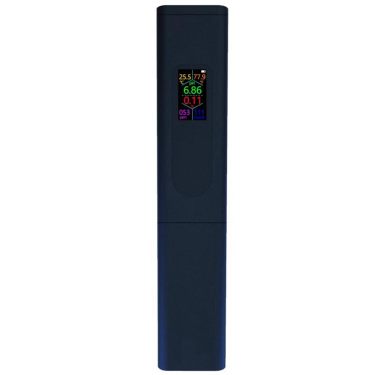
# Pool Thermometer: Essential Tool for Monitoring Water Temperature
## Why a Pool Thermometer Matters
A pool thermometer is an indispensable tool for any pool owner. Whether you have an in-ground or above-ground pool, maintaining the right water temperature ensures comfort, safety, and optimal swimming conditions. Without accurate temperature readings, you risk swimming in water that’s too cold or too warm, which can affect both enjoyment and health.
## Types of Pool Thermometers
### Floating Thermometers
Floating thermometers are the most common type. They drift on the water’s surface and provide a quick reading of the pool’s temperature. Many models feature large, easy-to-read displays and are designed to withstand pool chemicals.
### Digital Thermometers
Digital pool thermometers offer precise readings, often with additional features like memory functions to track temperature changes over time. Some even connect to smartphone apps for remote monitoring.
### Infrared Thermometers
Infrared thermometers measure surface temperature without direct contact. While not as commonly used for pools, they can be handy for spot-checking different areas of the water.
## How to Choose the Right Pool Thermometer
When selecting a pool thermometer, consider these factors:
– **Accuracy**: Look for thermometers with ±1°F accuracy
– **Durability**: Choose models resistant to chlorine and UV rays
– **Readability**: Opt for large, clear displays
– **Mounting options**: Decide between floating, wall-mounted, or handheld models
– **Additional features**: Some thermometers include pH monitoring or weather forecasting
## Proper Use and Maintenance
To get the most accurate readings:
1. Place the thermometer in a central location away from pool returns or skimmers
2. Allow sufficient time for the thermometer to adjust to the water temperature
3. Clean the thermometer regularly to prevent buildup that could affect readings
4. Store properly during winter months if you live in a cold climate
## The Science Behind Pool Temperature
Water temperature affects more than just comfort. It influences:
– Chemical effectiveness (warmer water requires more chlorine)
– Swimmer safety (cold water can lead to hypothermia)
– Energy costs (heating a pool requires significant energy)
– Algae growth (warmer water promotes faster algae development)
By regularly monitoring your pool’s temperature with a reliable thermometer, you can make informed decisions about heating, chemical treatment, and swimming schedules.
Keyword: pool thermometer
## Conclusion
A quality pool thermometer is a small investment that pays significant dividends in pool maintenance and enjoyment. Whether you prefer a simple floating model or a high-tech digital version, having this essential tool ensures you’ll always know your pool’s temperature at a glance. Regular monitoring helps maintain ideal swimming conditions while potentially saving money on heating and chemical costs.
Comments are closed